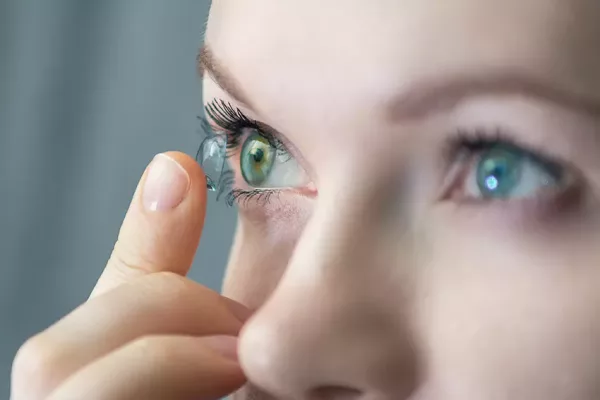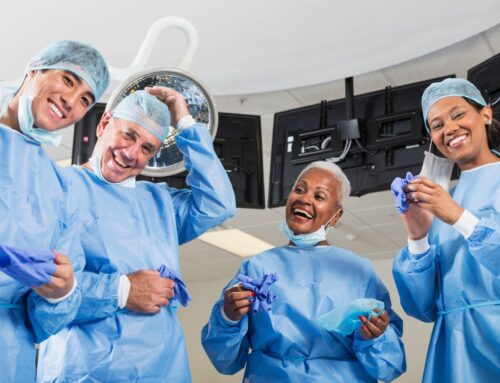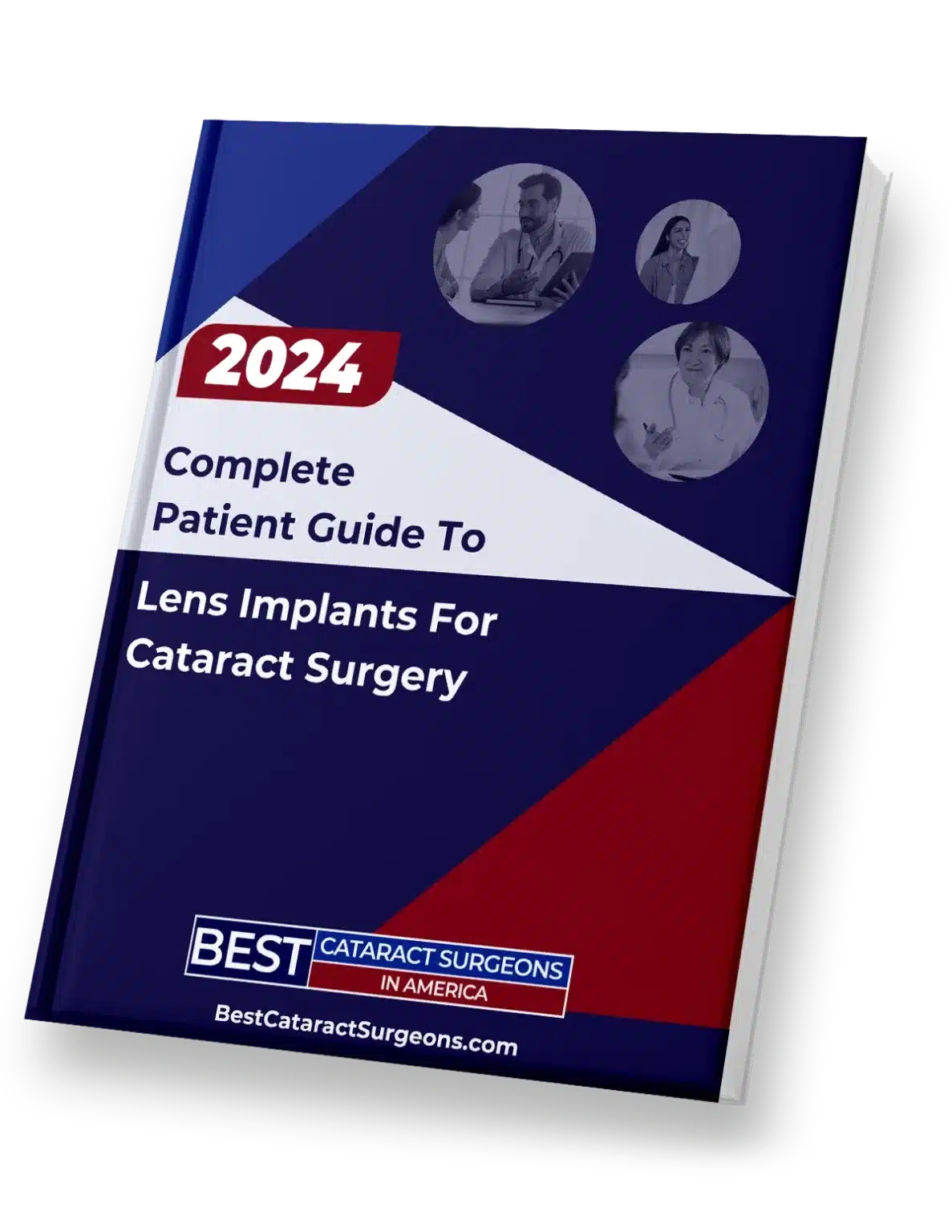It’s normal for people to be nervous before any medical procedure but having an understanding of how to prepare for your cataract surgery will help tremendously. Some of this anxiety can come from the uncertainty of not knowing exactly what you should do before surgery. Your doctor may give you instructions for things to do before your procedure… or not to do. It’s important to follow the instructions your doctor gives you.
In this article, we’ll go over a few of the common things many surgeons instruct their patients to do before cataract surgery. Every surgeon does things a little bit differently, so please make sure you know what your surgeon wants you to do before your procedure.
But this will give you an idea of the questions you should be discussing with your doctor and his staff.
Let’s get started!
Preparing for your cataract surgery: Food
Before most surgery, your doctor will not want you to eat anything after midnight on the night prior to your procedure. This mostly has to do with the type of anesthesia or sedation you have and the rules for the facility you have your procedure at.
There is a trend in cataract surgery to use oral sedatives, rather than stronger IV sedation. Depending on where your surgery will be, the regulations that govern that center, your surgeon’s preferences, and the type of sedatives you have, you may or may not be able to eat after midnight.

If you are a diabetic or have surgery later in the day and fear that you cannot go without food for that long, be sure to tell your doctor this.
As a general rule, most surgeons require you not to eat after midnight… and if you do… it is very likely that your surgery will be canceled. So please follow the instructions on this as it is a very important rule!
Medications before cataract surgery
Medications are typically treated differently than food. However, some medications have to be taken with food.
Don’t assume that medications are treated the same way as food. If you are supposed to take medications in the morning on the day of your cataract surgery, be sure to ask your doctor. This is a very frequent question most doctors are asked, and most of the time your surgeon will want you to take your usual morning medications with a small sip of water. If there are other medications that require to be eaten with a meal, these would be good medications to go over with your doctor.
Remove contact lenses for your surgery
Most doctors want you to be out of your contact lenses for at least the day before your cataract surgery, if possible. It’s usually more important for you to be out of your contact lenses prior to the measurements that are taken for your lens implants since your contacts can change the shape of your cornea by pressing on it.
Once your measurements are taken, your surgeon may allow you to wear your contacts until the day of surgery, but many surgeons like you to be out of your contacts for longer. Be sure to discuss this with your doctor.
Preparing your ride for cataract surgery… Have a driver.
You will need a ride to and from surgery. Many patients ask if they can drive themselves home after surgery… and the answer is NO!
There are 2 main reasons for this…
First, most patients have sedatives and anesthesia during their procedure. These linger in your system for yours and will impair your ability to drive. You are simply not legal to drive due to having these substances in your system.
Secondly, your vision will be blurry after surgery. For some patients, by the next day, their vision will be legal to drive; however, legal doesn’t mean safe, and it may take a few days for your brain to get used to your new vision before you will feel safe to drive.
Eye drops
Most patients are instructed to take eye drops after their cataract surgery, and some are instructed to take them before surgery. These eye drops are intended to prevent infection and inflammation. Please make sure you understand the instructions your doctor gives.
Also… make sure to pick your eyedrops up before your surgery. By having them in advance it will save you a trip of waiting at the pharmacy after your procedure. When you’re tired and in need of relaxation after your procedure, you don’t want to have to wait in line at a pharmacy or deal with a pharmacy problem such as not having the medicine in stock or not having the prescription information correct. Save yourself some hassle by getting this done in advance.
As for other eye drops… Many patients take drops for other conditions like dry eyes or glaucoma. Most of these drops can be continued until the morning of your procedure. But ask your doctor to be sure.
Get your finances ready and talk to your insurance company.
Finances and insurance questions are another matter that you don’t want to worry about after your procedure. Cataract surgery is a life-changing procedure that will impact your quality of life for the rest of your life. Experienced practices that specialize in cataract surgery should be able to help you navigate your insurance situation. However, every insurance plan is a little different, and every patient has different personal financial situations, and considerations when it comes to deductibles, co-pays, and out-of-pocket expenses. No one lies about getting medical bills they don’t understand after their procedure. Unfortunately, modern medical insurance can be complex. We encourage you to work with your surgeon’s team to get your questions answered before your procedure!
Ask questions!
As part of your preparation, you need to ask questions to become comfortable with the process. Most of these questions are often best directed to your surgeon’s staff. Of course, your doctor should handle medical questions, but so many of the insurance or logistics questions are often best handled by their staff. For example… directions to the surgery center?… what time do I show up?… what time will I be done?… etc.
Conclusion
There’s no reason for cataract surgery to be stressful. Millions of patients have it done every year in the United States. Being prepared in advance is the best way to calm your nerves, have a relaxing day at your modern surgery center, and start enjoying your future of clear vision! If you need to find a cataract surgeon in your area, please visit our doctor finder page here.














